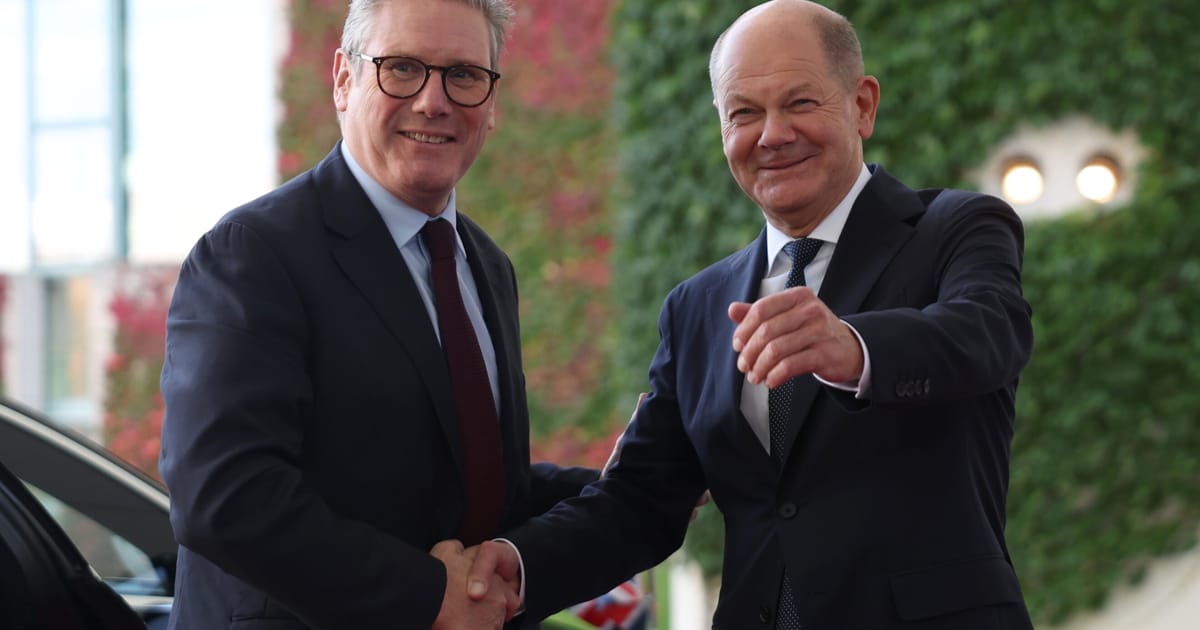The deal is all part of a master plan from the new British Labour government to forge closer ties between the U.K. and major European capitals, both through NATO and on bilateral terms.
The Trinity House Agreement, named after the London building that houses the body in charge of lighthouses, and where the ministers will meet, will mean “unprecedented levels of new cooperation with the German Armed Forces and industry,” Defense Secretary John Healey said in a statement ahead of signing the deal.
Bilateral relations with Germany have been in focus for the U.K. ever since Labour won a landslide victory in July’s general election. Three weeks after the vote, Healey traveled to Berlin for talks with his German counterpart aimed at making good on a pledge to quickly negotiate military and security pacts with European allies.
The Trinity House text will complete a triangle of defense deals among Europe’s big three military nations. The others are the pre-Brexit 2010 Lancaster House agreement between the U.K. and France and the 2019 Aachen Treaty binding France and Germany on military coordination.
The British government has already launched a Strategic Defense Review to figure out its future military needs, but the Anglo-German cooperation caters more to Berlin’s interests than to London’s.
Under the pact, Rheinmetall has bagged a deal to produce artillery barrels in the U.K. from 2027, a move which will create 400 jobs, according to Britain’s defense ministry, and greatly expand the company’s presence in the U.K. arms market.
